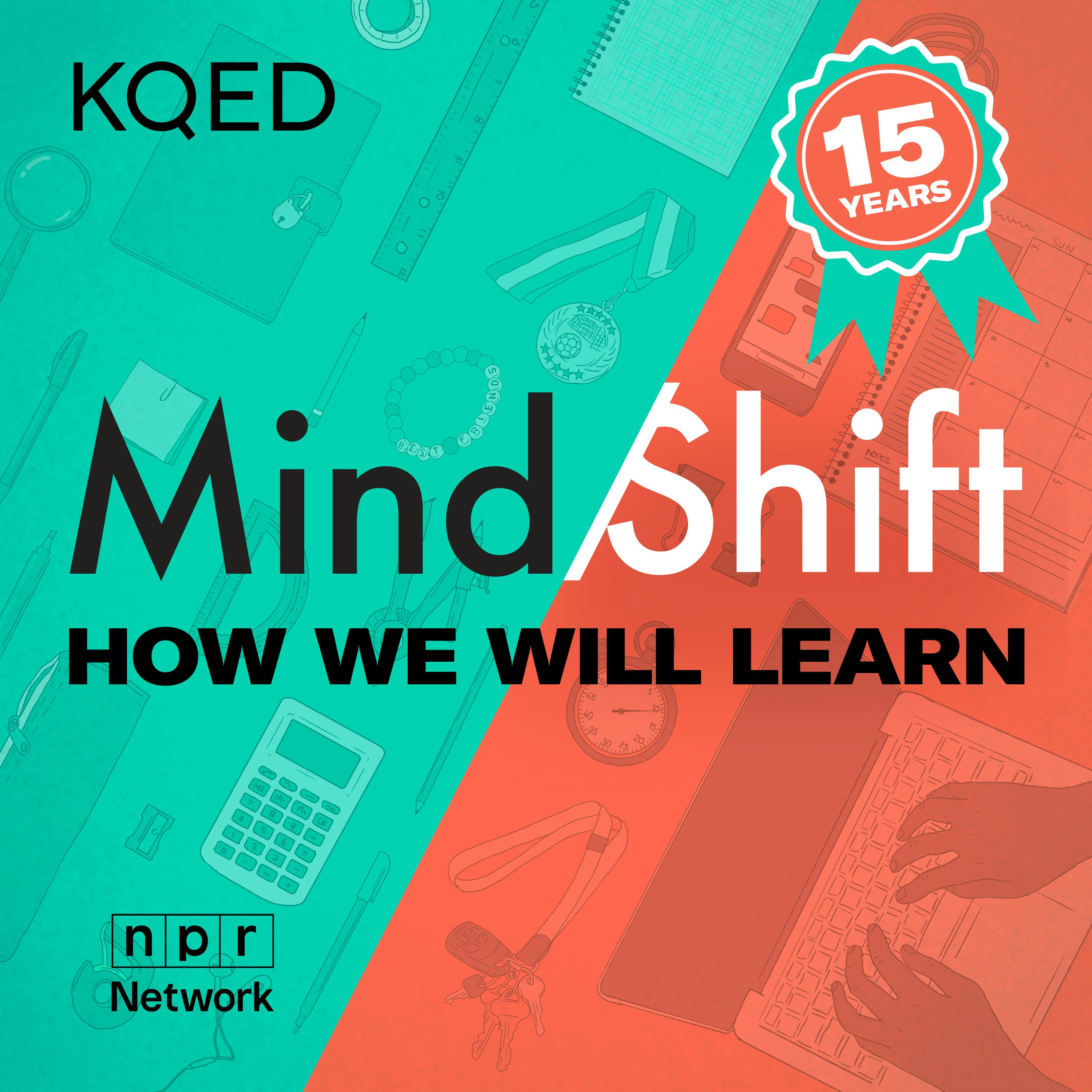

MindShift Podcast
KQED
It’s easy to see a child’s education as a path determined by grades, test scores and extra curricular activities. But genuine learning is about so much more than the points schools tally. MindShift explores the future of learning and how we raise our kids. This podcast is part of the MindShift education site, a division of KQED News. You can also visit the MindShift website for episodes and supplemental blog posts or tweet us @MindShiftKQED or visit us at MindShift.KQED.org. Take our audience survey! https://survey.alchemer.com/s3/7297739/b0436be7b132
Episodes
Mentioned books

Jun 10, 2025 • 17min
What Our First and Last Words Can Tell Us About Our Humanity
This month MindShift is sharing an excerpt of an episode from our friends at KQED's Forum. Forum tells remarkable and true stories about who we are and where we live.
KQED's Grace Won talks to linguist and author Michael Erard. In his new book, Bye Bye I Love You: The Story of Our First and Last Words, Erard compiles stories from medical archives and ancient texts as well as first-hand accounts by doctors and doulas to examine why these particular words mean so much to us.
Listen to the full episode here: https://www.kqed.org/forum/2010101909002/the-stories-behind-our-first-and-last-words

9 snips
May 13, 2025 • 32min
Can Better Conversations Fight Misinformation and Build Media Literacy?
Tanner Higgin, a senior educational technology researcher, Kira Bettis, a digital teaching specialist, and Steve Saltwick from Braver Angels share strategies to improve media literacy amid rising misinformation. They discuss how fostering dialogue can bridge political divides and strengthen democracy. The conversation highlights the evolving nature of media education in schools and the importance of incorporating diverse perspectives. They also explore fostering understanding in difficult conversations and the role of identity in media interpretation.

Apr 8, 2025 • 21min
Minnie Phan: A Young Girl and the Power of Art
Vietnamese children’s book illustrator Minnie Phan talks to KQED's Ki Sung about using art to process events and heal wounds in the Vietnamese diaspora.

15 snips
Mar 11, 2025 • 15min
Why Handwriting Still Matters in the Age of Screens
In this engaging discussion, Nancy Cushen White, an experienced educator and language therapist, sheds light on the pivotal role of handwriting in literacy development. She contrasts traditional handwriting methods with digital approaches, emphasizing how writing by hand boosts memory and language skills. The conversation also touches on the decline of cursive writing and its educational implications. Through anecdotes, Nancy illustrates effective teaching strategies, revealing the joy and importance of nurturing handwriting in today's screen-centric world.

10 snips
Feb 11, 2025 • 30min
Disengaged Teens: What to Know and How to Help Them Find Their Spark
Jenny Anderson, a longtime journalist specializing in learning, and Rebecca Winthrop, a Georgetown professor focused on universal education, delve into the complexities of teen disengagement. They explore the different modes of engagement, such as 'passenger' and 'resistor' modes, and emphasize the importance of autonomy in reigniting student motivation. The conversation highlights the disconnect between adult perceptions and teen experiences, offering strategies for parents and educators to empower teens for better academic and emotional outcomes.

Jan 14, 2025 • 17min
How to Help Boys Thrive in a Changing World
Ruth Whippman, author of "Boy Mom: Reimagining Boyhood in the Age of Impossible Masculinity" talks to KQED's Nimah Gobir about the biggest challenges facing boys today, and actionable steps parents and educators can take to make a difference for the boys in their lives.

Dec 10, 2024 • 23min
Book Reading Goals for Young Readers with Traci Thomas
KQED's Ki Sung talks to host of The Stacks podcast, Traci Thomas, about rereading books she loved as a child with her own children, what's on her reading list as they grow and what she's learned about reading from all of her author interviews.

8 snips
Nov 12, 2024 • 15min
The Lasting Impact of Full-Length Reading
Join a lively discussion on the declining reading stamina of college students, influenced by digital distractions and educational practices. Delve into how standardized testing impacts deep reading abilities and links to academic success. Discover the importance of immersive literature through the experiences of an English teacher advocating for diverse texts. Finally, explore how full-length reading fosters mental endurance and character development, connecting these reading habits to career readiness and engagement in today’s fast-paced world.

Oct 8, 2024 • 24min
How the Mentor Mindset Can Help Adults Show Up Better for Tweens and Teens
David Yeager, a behavioral science expert and professor at the University of Texas at Austin, delves into how adults can foster a supportive environment for adolescents. He highlights the importance of empathy in understanding the emotional needs of tweens and teens, emphasizing their quest for respect. The conversation shifts to the vital role of mentorship, advocating for a 'mentor mindset' that contrasts with traditional authority. Yeager shares practical strategies like transparency and questioning to engage young people, ultimately guiding them towards self-motivation.

Sep 24, 2024 • 27min
Why Poetry Is Making a Comeback in Schools
Hanif Abduraqqib. Sarah Kay. Elizabeth Acevedo. Clint Smith. Do any of these names sound familiar? How about Amanda Gorman? All of these writers are part of America’s thriving contemporary poetry scene. But you won’t find them in many text books, because high school poetry units tend to focus on dead poets, like Robert Frost, Walt Whitman and Edgar Allen Poe. North Carolina teacher Melissa Smith is working to change that. For the last seven years, she’s been diversifying the canon in her classroom, and encouraging other teachers to do the same with the hashtag #teachlivingpoets. The shift has inspired teachers across the country to get creative with how they teach students things like tone, rhythm and structure in poetry. And it’s inspired students to connect with and see reflections of themselves in the poets they study.


